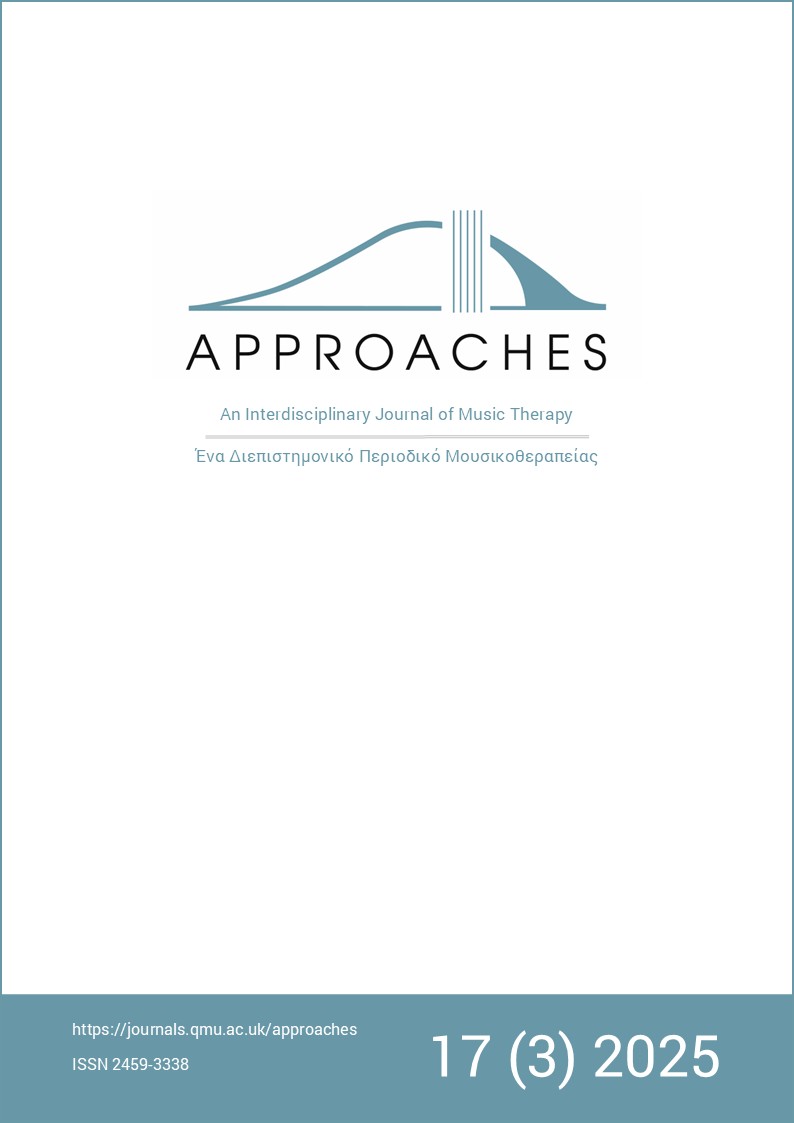Building relationships in music therapy: A case study with a boy with Down syndrome based on transcendental phenomenological analysis
DOI:
https://doi.org/10.56883/aijmt.2024.308Keywords:
music therapy, Down syndrome, relationship, phenomenological approachAbstract
This practice-based article came from experience that occurred during a sixthsemester internship at a primary school in Denmark with special classes for children with learning disabilities. The client of this case is a nine-year-old boy with Down syndrome. This qualitative case study investigates the impact of relationships in music therapy and how they can influence the development of the therapy. The study explores how the relationship between a music therapist and a client with Down syndrome affects the therapeutic outcome and the client’s development and participation in music therapy. This study came from a qualitative case study with material derived from the four music therapy sessions using sequences of video recordings. Based on a phenomenological approach, the material had been analysed through microanalysis using thematic coding, horizontal analysis, and qualitative analysis. The results indicate that relationships are the key to development in music therapy. The client shows more initiative and becomes more independent throughout the sessions. Finally, this study indicates that the client’s communicative skills and the development of the music therapy sessions show improvement as the relationship between the music therapist and the client improves.
Downloads
Published
Issue
Section
License
Copyright (c) 2024 Rikke L. Højvang Christensen, Gustavo Schulz Gattino

This work is licensed under a Creative Commons Attribution-NonCommercial-NoDerivatives 4.0 International License.




